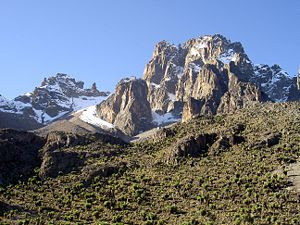Environmental refugees
The UN Environment Program (UNEP) called for far greater action on climate change yesterday during events of World Environment Day, established by the UN General Assembly in 1972 to raise global awareness of the environment and boost political attention and action. This year's theme is Melting Ice: A Hot Topic? though all aspects of climate change have recently climbed to the top of UNDP's and other UN agencies agendas.
Achim Steiner, Executive Director of UNEP observed that climate change is “magnifying existing disparities between rich and poor” and “aggravating tensions over fragile or increasingly scarce natural resources” such as productive land and freshwater. “It increases the potential to create a new class of displaced people known collectively as environmental refugees,” Mr. Steiner warned.Climate change is affecting the living conditions of those in the poorest countries of the world. By creating awareness and practical programs, UNEP has a chance to curb these negative side effects.





